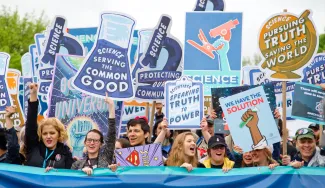
The city of the future
The city of the future will be good for ‘prosumers’ rather than consumers by using intelligent, clean and 100% renewable energy. Geothermal energy could be the cornerstone of this energy system because it can meet most residential heating needs as well as being an answer to a large share of Europe's energy needs.

The unique position of geothermal
It is therefore obvious that geothermal flexibility should be harnessed through large, centralised options and small-scale, private initiatives so that geothermal brings some balance to the realm of variable (renewable) energy by 2050.
Geothermal energy can bridge the gap between the heating, power and transport sectors. This is possible by:
- building combined geothermal power plants that provide more flexibility to heat and cold supplies as well as electricity;
- linking geothermal sources to heat sources to cover peak periods;
- storing surplus heat in underground geothermal reservoirs;
- storing a stock of electricity as heat for later use;
- Using secondary fuels from geothermal fluids to store energy or for transportation purposes by creating synthetic fuels from CO2 and hydrogen
Mission 1: clean energy production
The first mission is to ‘contribute to clean energy production in Europe by further unlocking geothermal potential’. This is possible thanks to:
- the development of new or optimised technologies;
- new research to further reduce potential risks, which will lead to plant innovation.
Mission 2: improved social welfare
With our second mission, we want to improve social welfare using geothermal energy responsibly. This is possible by:
- reducing the initial cost of investment;
- accepting new technologies in developing areas;
- engaging consumers in production to develop the role of prosumers;
- lowering legal and financial barriers.
It is therefore important from the following challenges: the shift from Research and Innovation to commissioning and knowledge sharing, by setting 2 priorities that shape the broader mission.
Priority 1: Integrating geothermal energy into the circular economy by:
- standardising procedures and quality branding;
- optimising the use of recycled or secondary materials or waste.
Priority 2: Human mobilisation and outreach by:
- Expanding the education and training process through networking;
- An employment plan: transferring knowledge and absorbing personnel from declining industries while also promoting worker mobility within the European Union;
- Launching international partnerships.
Future of geothermal energy in Europe
Europe wants to invest in a renewable future, and geothermal has all the potential to help:
- Strengthening industrial leadership
- Creating jobs
- Cultivating export opportunities
- A secure energy source that is free from the effects of climate change and helps combat it by reducing greenhouse gas emissions.
- Creation of synergy and knowledge transfer between existing underground energy suppliers (oil, gas, water, nuclear): they have knowledge that can be useful for harnessing geothermal energy, which in turn can lead to growth opportunities and sustainable technology.
- In this way, the ultimate goal of being able to provide a city of the future with heating and lighting using geothermal energy as a cornerstone is something that should certainly be achievable if all partners are behind it.






